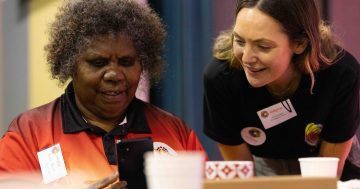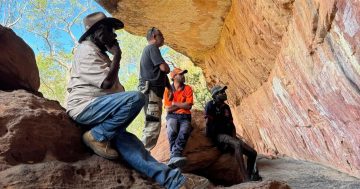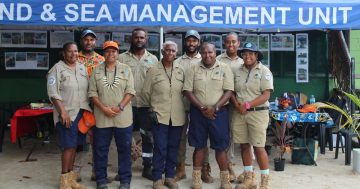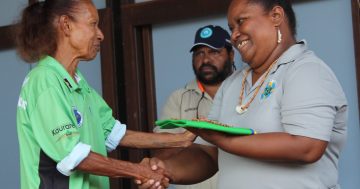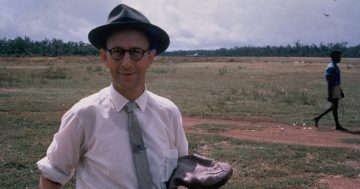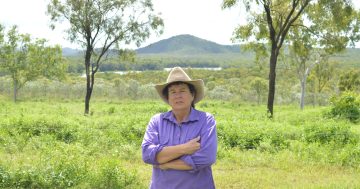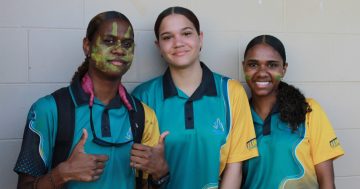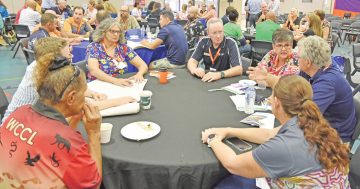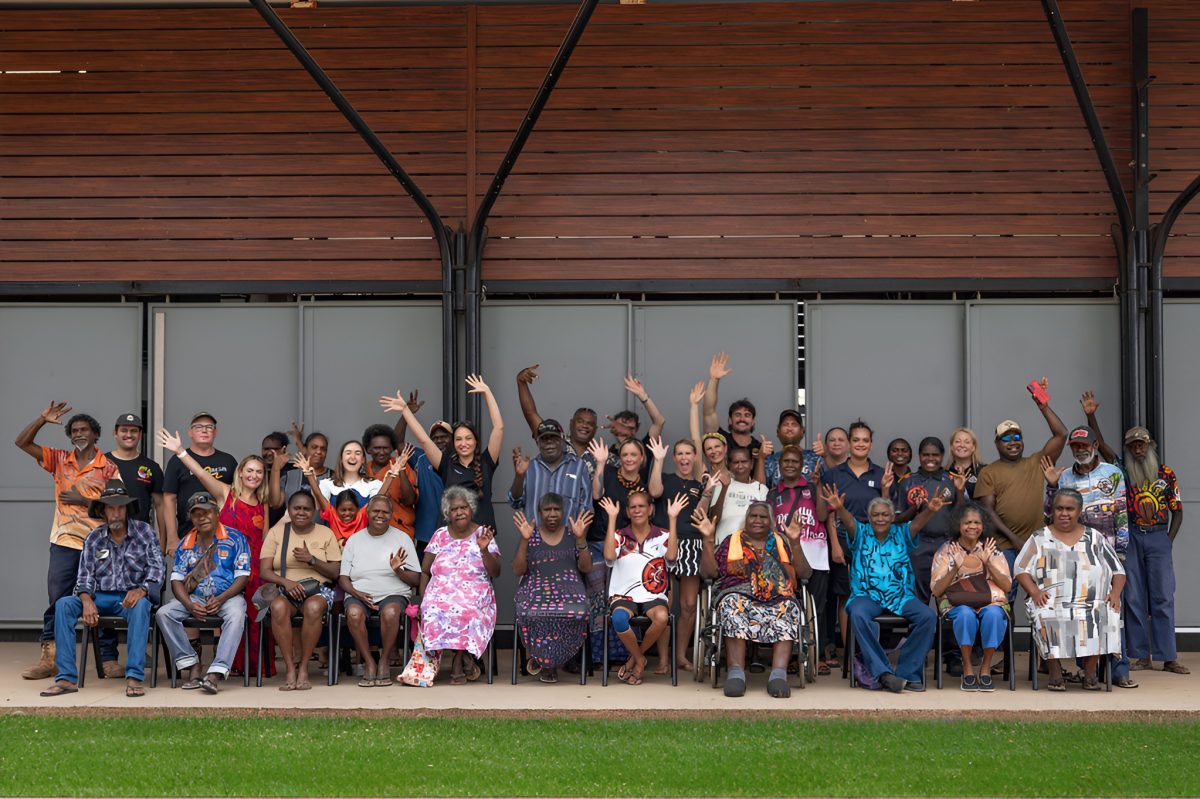
Western Cape communities unite to celebrate conservation achievements made through the Caring for Country through Digital Literacy program. Photo: Supplied.
Digital technology is ensuring the knowledge of Traditional Owners and Elders has a concrete impact on protecting the environment.
Communities across Western Cape York came together in Weipa on 13 November to celebrate the achievements of the Caring for Country through Digital Literacy program — a community-led partnership between Indigital, local Elders and Rio Tinto.
Season two of the program, themed Our Waters, Our Futures, focused on community-driven waterway conservation with the use of cutting-edge technology such as LiDAR scanning and environmental DNQ (eDNA) sampling.
Over the past six months, Elders, rangers, youth and educators from Aurukun, Mapoon, Napranum and Weipa have learned how to combine cultural stories, science and data to protect Country.
In Aurukun, Aak Puul Ngantum Rangers conducted independent eDNA sampling by boat, marking the first time water monitoring has been led entirely by local rangers. In Weipa and Napranum, Elders and teachers at Western Cape College (WCC) designed an approach for learning in the classroom that combined traditional knowledge with eDNA; and in Mapoon, Elders guided workshops combining language, environmental science and technology, linking cultural knowledge to future enterprise and conservation.
The program was guided by the Caring for Country Aboriginal Community Reference Group (ACRG), which was made up of Elders and Traditional Owners across the four communities.
Apalech Traditional Owner Aunty Vera Koomeeta, who served as a member of the ACRG for both seasons one and two, reflected on the value of combining the digital literacy of young people with the traditional knowledge of Elders.
“It’s been a tremendous year for the four communities, for the challenges that we have faced, especially getting involved in new ways of knowing how to take care of our Country and teaching our children, although they are smarter than us, being old schoolies,” she said.
“They are our future, who know technology more than us, but the knowledge of their Elders is very, very important for them to take into account.”
WCC integrated eDNA sampling into certain parts of the curriculum, giving students an opportunity to participate in excursions and try the method for themselves.
Last week, the Year 10 ranger group headed to the Napranum Foreshore, and the aquatic students visited Peppan Country, where they were shown how to conduct eDNA sampling to test the water.
Head of Department of Engagement Vide Frieberg said though learning the method was valuable, she was more so touched by the connections the program had fostered.
“Honestly, I think the best thing that comes out of it is the relationships between community and the school,” she said.
“The aquatic students have fishing as part of their subject, so they fished with the Elders and the community and had a nice afternoon out there together, and then talked further about what the technology can do in community.”
The next phase, season three, will launch in 2026 with a focus on drone technology and aerial monitoring, expanding conservation from water and land to sky. The new curriculum will support accredited drone training, data storytelling, and community-led environmental monitoring.
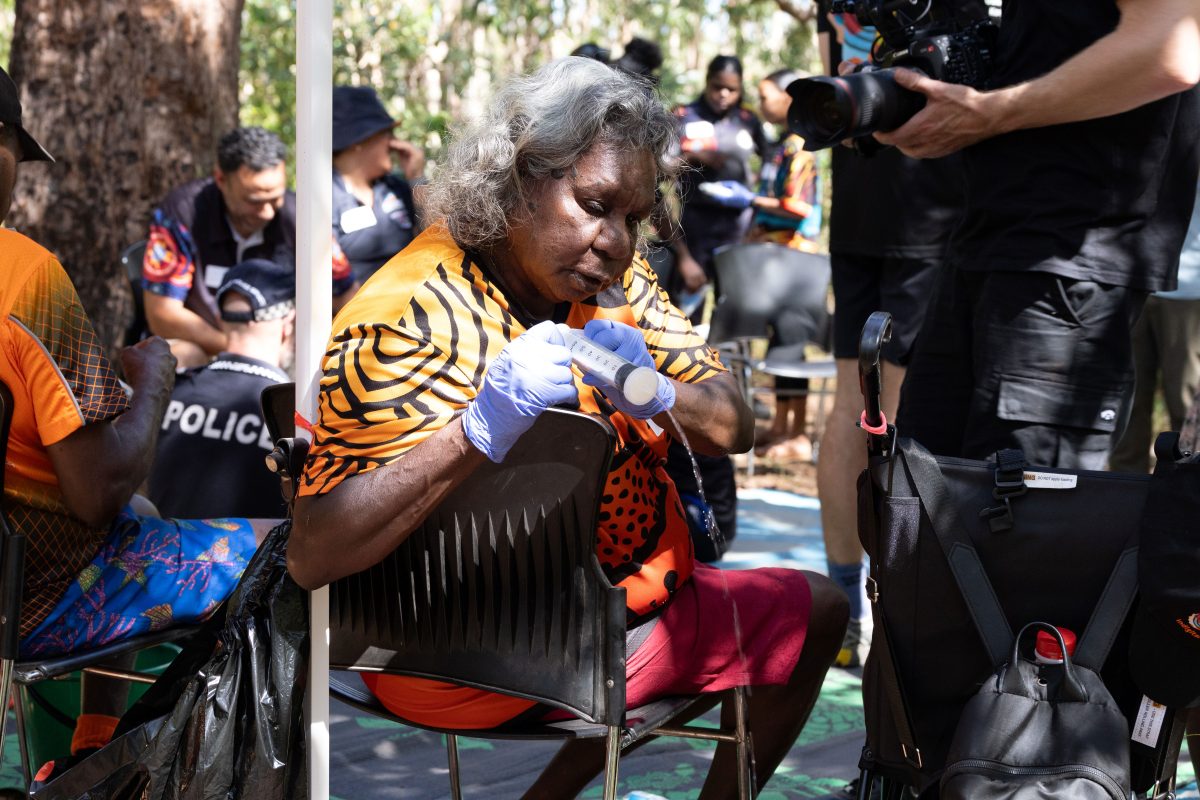
Apalech Traditional Owner Aunty Vera Koomeeta explores eDNA sampling and how it connects to protecting Country. Photo: Supplied.


